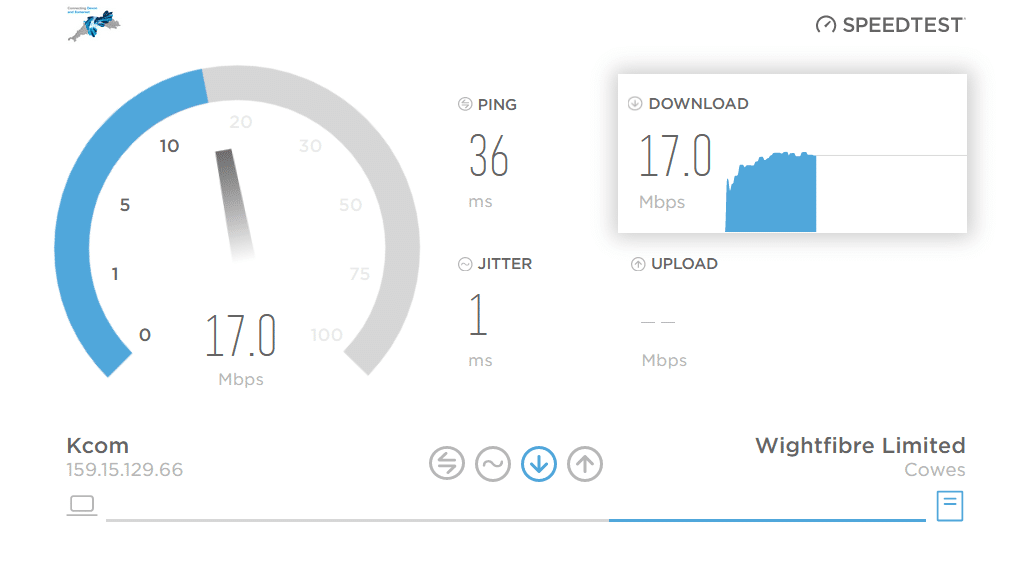Use the speed checker to find out how fast your current broadband connection is. It’s free to use and simple to do.
Broadband speed checker

Simple steps to ensure you get as accurate results as possible.
- Make sure you are not downloading anything on your PC / laptop.
- Shut down any software that uses the internet (e.g. web radio, Facebook, background downloads).
- Turn off any other computers, tablets, smartphones and games consoles that are sharing your wireless network.
- Ensure all broadband cables are properly and securely connected.
- With wireless routers, make sure you are as close to your wireless router as possible. Ideally you’ll be less than 10 metres away.
- Make sure there are no large objects between your computer and wireless router.
What does my speed actually mean?
It’s easy to be confused by terms like Mbps, Mb, MB and MB/s.
Broadband speed is generally measured in megabits per second. This is written as ‘Mbps’ or just ‘Mb’, sometimes this is also referred to as ‘meg’ or ‘megs’. A ‘bit’ is a single binary digit of data. There are 1,000,000 bits in a megabit. A Gigabit is a 1,000 Mbps and is written as Gbps.
Most computers measure filesize in ‘bytes’ rather than bits. Bits tend to be abbreviated to lower case b while bytes are abbreviated to upper case B, so a MB is very different to a Mb. Megabytes per second tend to be written as ‘MB/s’ or ‘MB/sec’. There are 8 bits to 1 byte, 1024 bytes to the kilobyte and 1024 kilobytes to the megabyte. This means that there are actually 1,048,576 bytes or 8,388,608 bits in a megabyte.
File transfer speed, as reported during a download, is likely to be measured in megabytes per second rather than megabits per second, which means this is more than 8 times slower than you might expect if you thought megabits and megabytes were equivalent.
